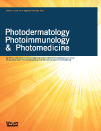 Researchers have agreed to pull a 2015 study exploring whether a plant extract can safeguard tanners from ultraviolet exposure after not obtaining formal approval from an ethics committee.
Researchers have agreed to pull a 2015 study exploring whether a plant extract can safeguard tanners from ultraviolet exposure after not obtaining formal approval from an ethics committee.
According to the first author, the problem lay in a misunderstanding – when they originally applied for approval six years ago, the researchers believed they didn’t need to go through a formal approval process, since the compound was commercially available without a prescription. Once they realized their mistake, they chose to retract the paper.
Here’s the retraction note for “Oral Polypodium leucomotos increases the anti-inflammatory and melanogenic responses of the skin to different modalities of sun exposures: a pilot study,” published in Photodermatology Photoimmunology & Photomedicine.
The above article, published online on November 6, 2015 in Wiley Online Library (wileyonlinelibrary.com), has been retracted by agreement between the authors, the journal Editor in Chief, Thomas M. Ruenger, MD PhD and John Wiley & Sons Ltd. The retraction has been agreed as the clinical trial reported in this manuscript was not approved by the local Ethics Committee.
The paper — cited two times according to Clarivate Analytics’ Web of Science, formerly part of Thomson Reuters — evaluated whether a plant extract, derived from the tropical fern Polypodium leucomotos, could protect the skin from the effects of UV radiation. People have used this extract for decades to treat a range of inflammatory and skin conditions, and both oral and topical variations are sold over-the-counter in the United States and online.
First author Piergiacomo Calzavara-Pinton, director of the School of Specialization in Dermatology and Venereology at the University of Brescia, Italy, provided more insight into the ethics approval issue:
The story is very simple: When we submitted the protocol, about six years ago, the protocol was informally approved but, as polipodium is not a drug, they did not give it a code for a study with drugs. After all that time we used the data for the publication but, when we found that more recently, even if it is not a drug and in the absence of a specific regulations for studies with nutriceuticals and with healthy volunteers, we had to apply as a drug (but it is impossible because the polipodium is usually sold and used worldwide but pharmacokinetic data are not available and phase I and II studies were never done) and therefore we preferred to withdraw the paper.
Calzavara-Pinton also clarified that the authors received no sponsorship for the study and no participants were harmed:
The trial was not conducted with patients but with healthy volunteers and with a compound (NOT a drug), polipodium, without any known toxicity and we did not register any adverse event.
Although many reports have shown that even popular over-the-counter supplements can cause serious side effects, studies suggest that Polypodium leucotomos is safe in the short-term.
We’ve reached out to the journal editor and will update more any new information.
Hat tip: Rolf Degen
Like Retraction Watch? Consider making a tax-deductible contribution to support our growth. You can also follow us on Twitter, like us on Facebook, add us to your RSS reader, sign up on our homepage for an email every time there’s a new post, or subscribe to our daily digest. Click here to review our Comments Policy. For a sneak peek at what we’re working on, click here.